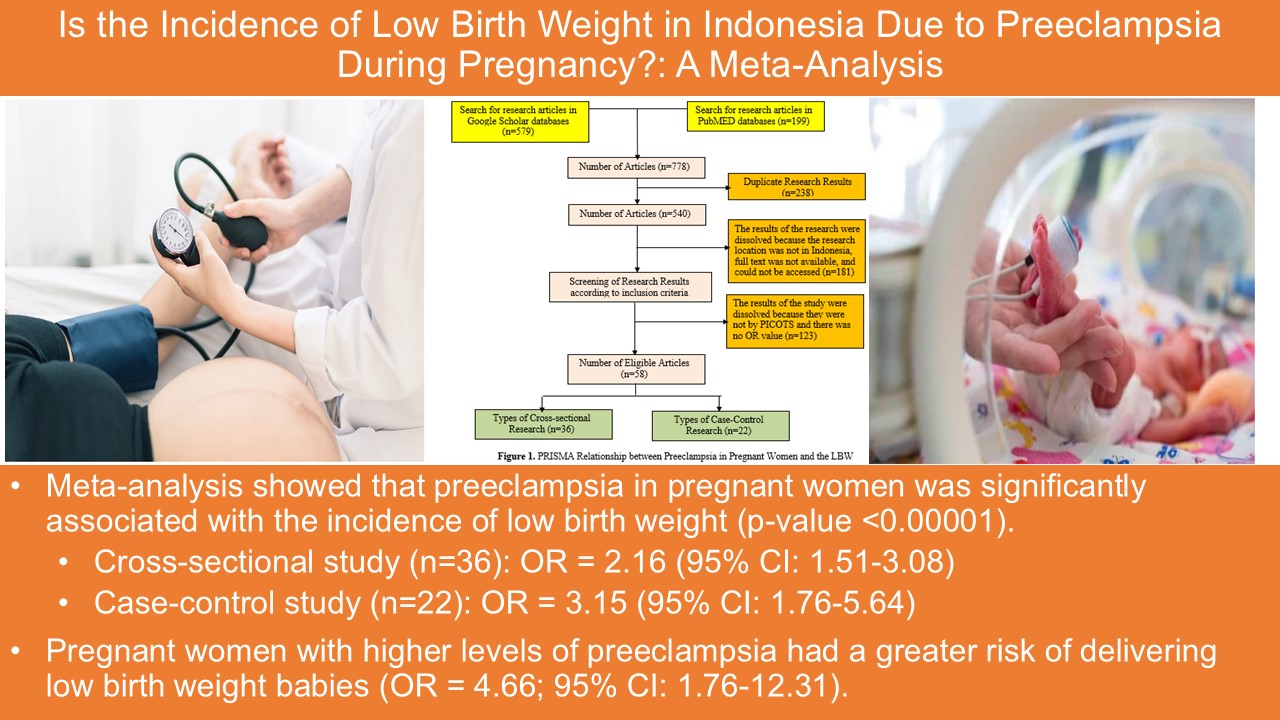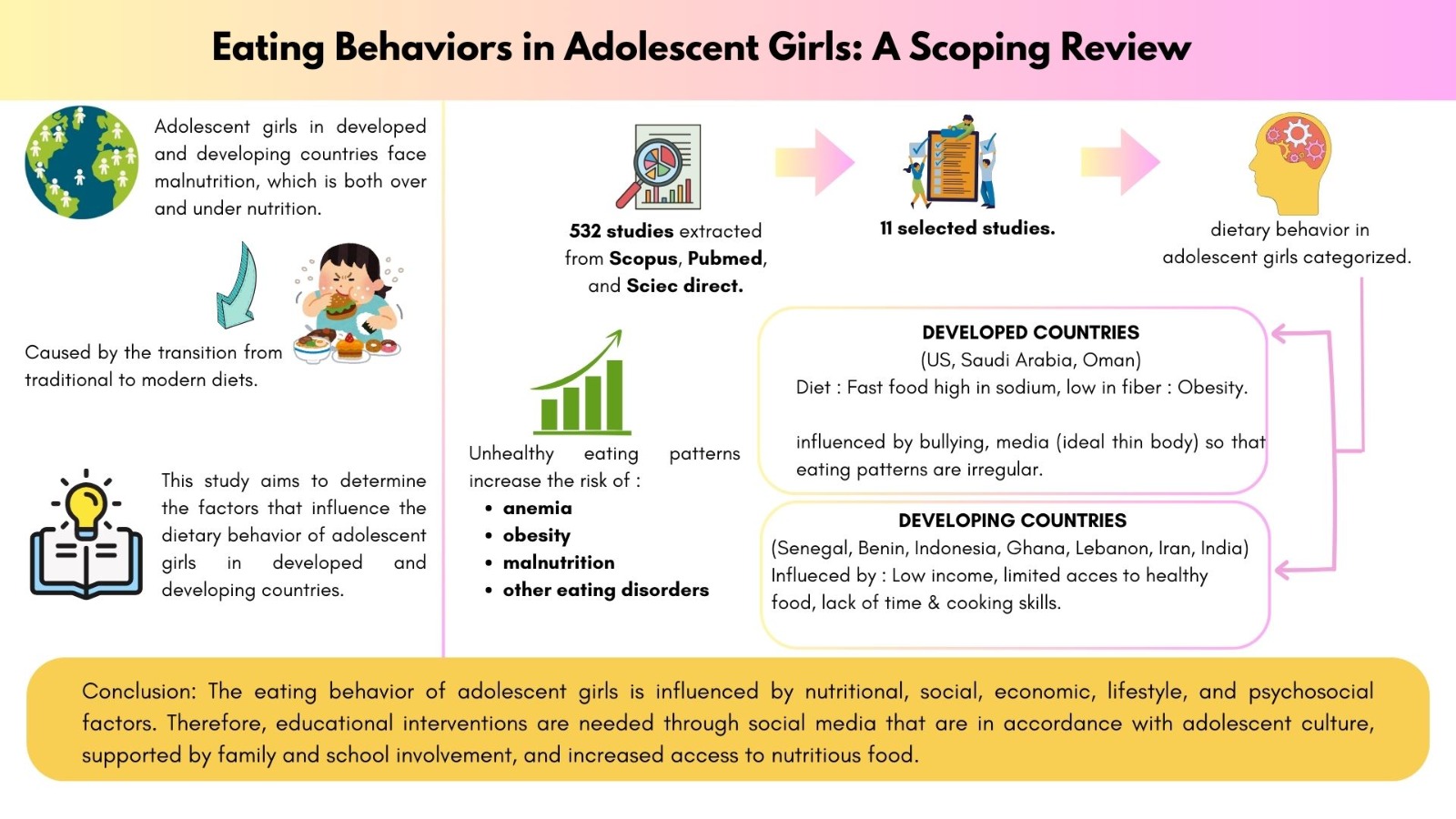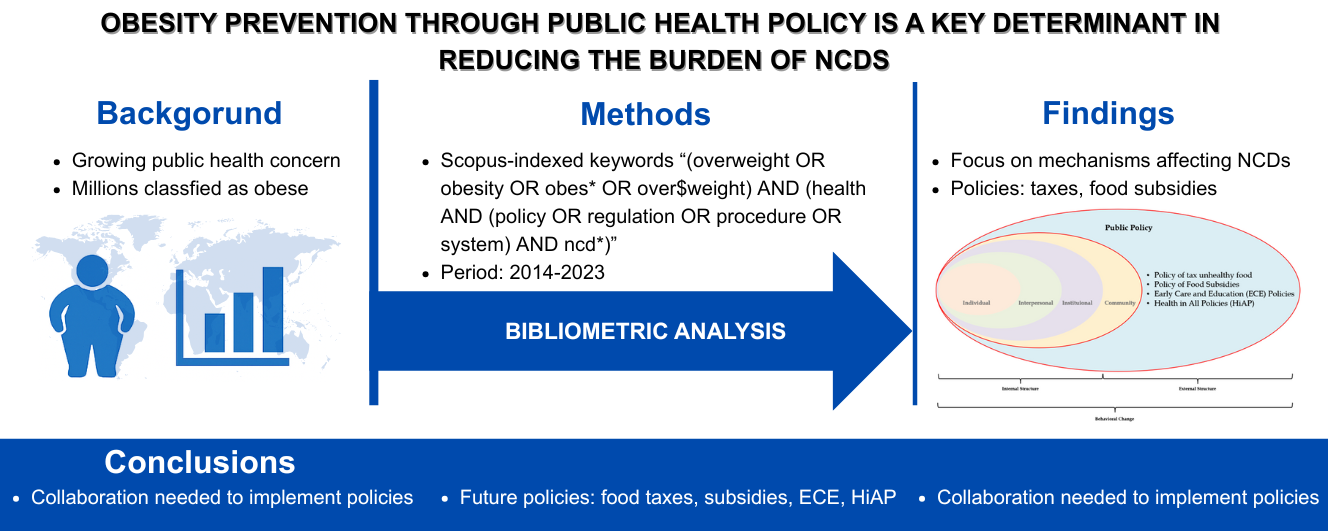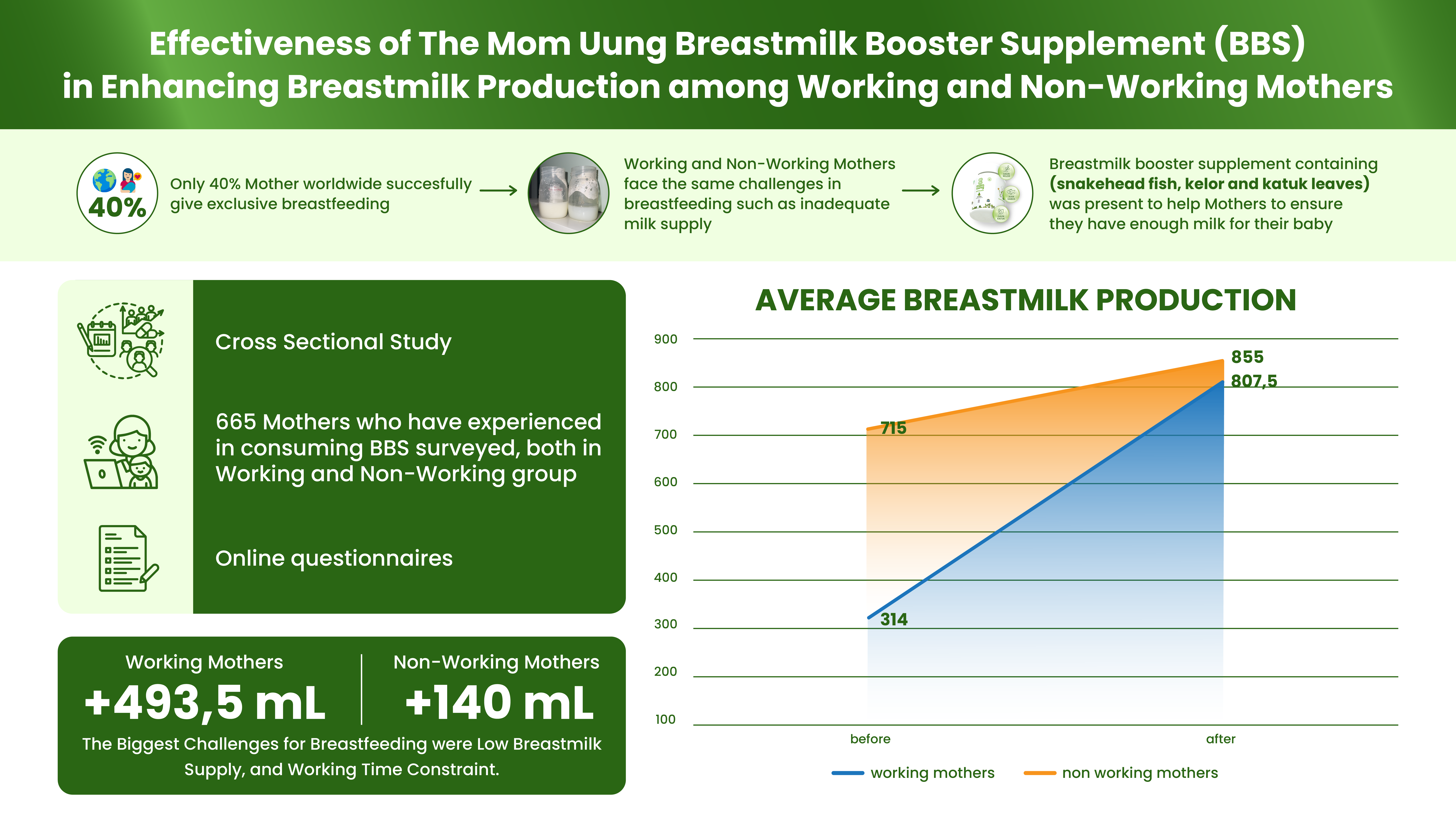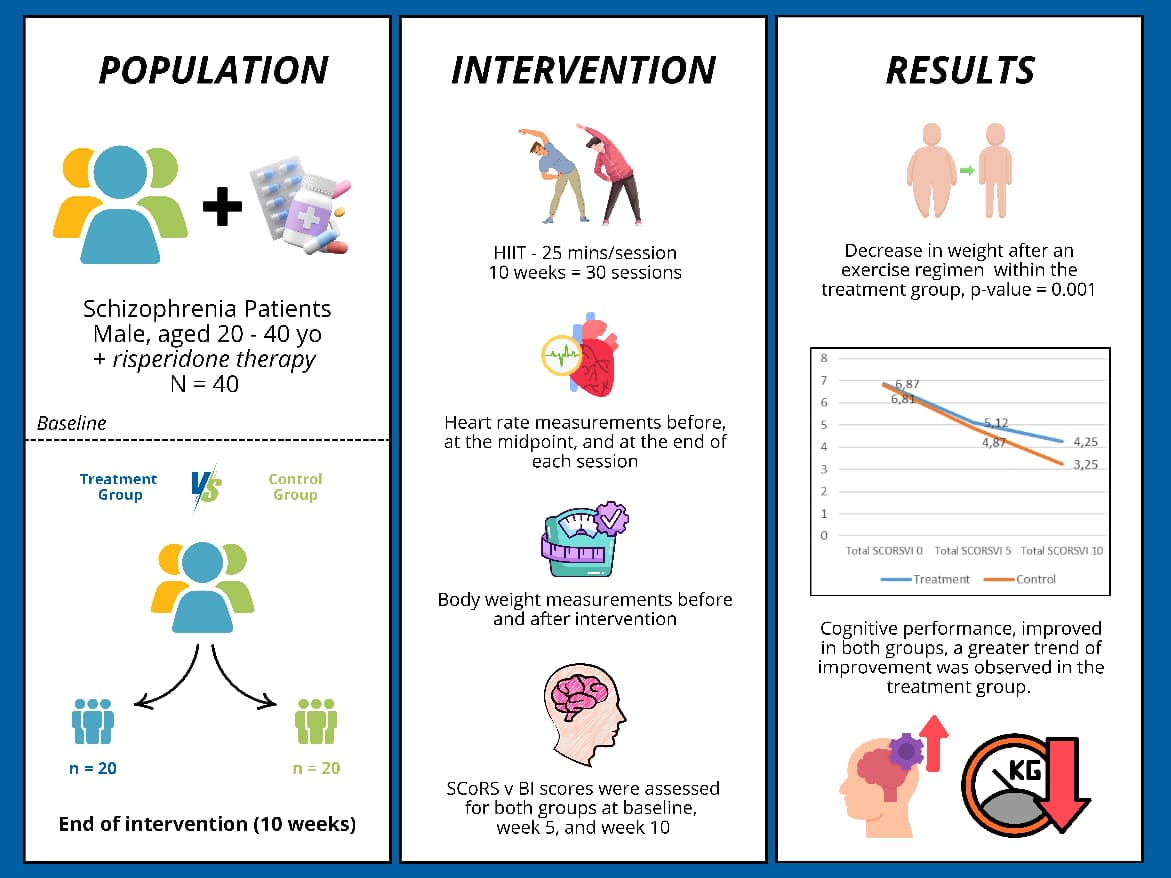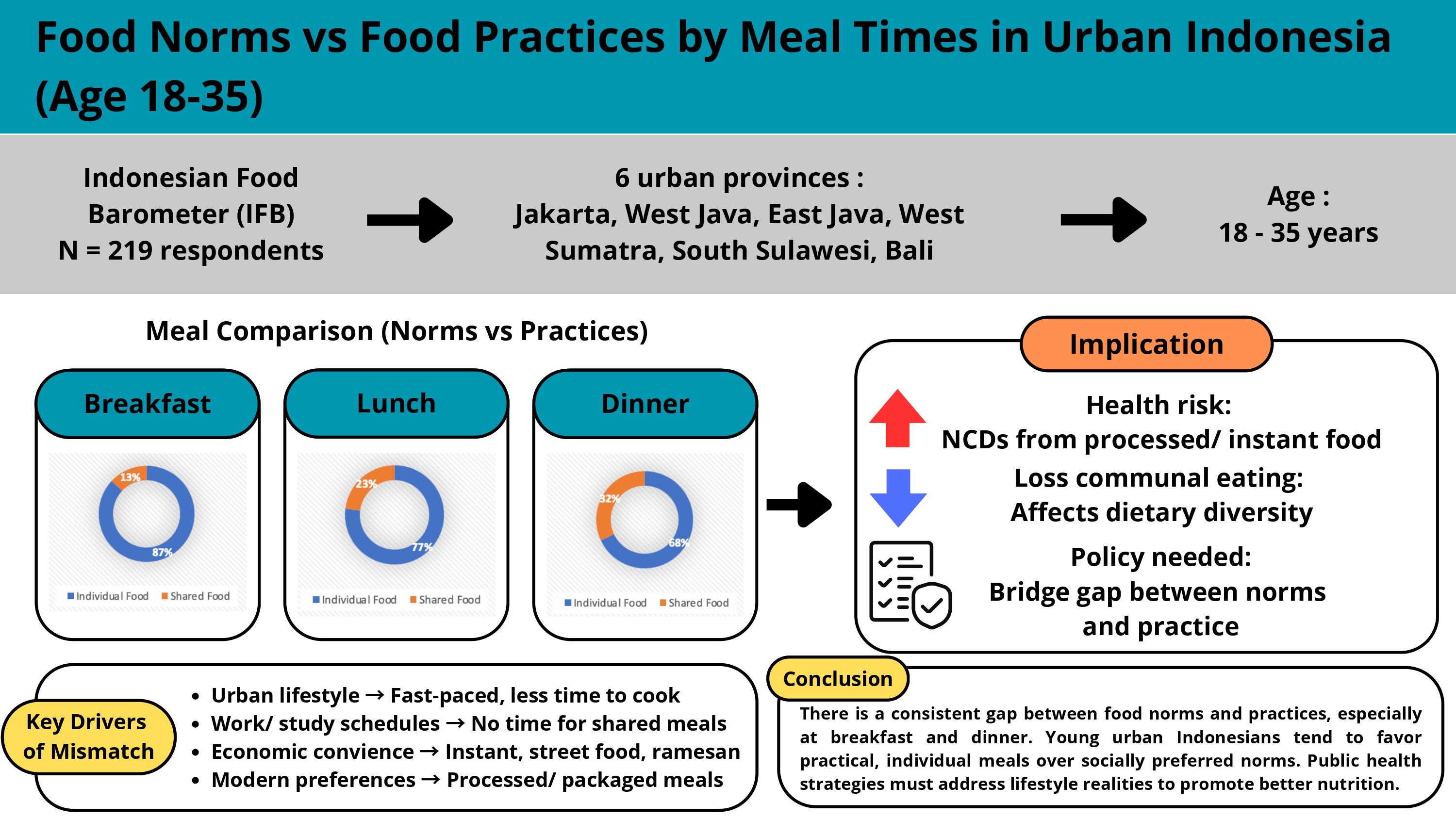Nutrition Education and Assistance Based on Behavior Change in Adolescent Girls to Improve Nutritional Status and Hemoglobin Levels
Downloads
Inappropriate nutritional behavior is a common cause of nutritional issues among adolescents, often leading to conditions like underweight and anemia. This study aimed to assess the impact of nutrition education and behavioral change-based support on the nutritional status and hemoglobin levels of adolescent girls. The study included 75 adolescent girls aged 16-18 years from Singosari Village, Gresik District, chosen through purposive sampling. Over a 30-day period, intensive nutrition education and assistance were provided, utilizing various methods such as lectures, discussions, role play, and practical exercises. The results revealed significant improvements in various aspects. Participants exhibited increased nutrition knowledge, energy and protein intake, body weight, nutritional status, and hemoglobin levels after the intervention (p < 0.05). The rise in knowledge was linked to higher protein intake (p=0.009), while adequate protein intake was associated with weight gain (p=0.025). Weight gain, in turn, correlated significantly with improved nutritional status based on BMI/U (p = 0.041). Hemoglobin levels also significantly increased, shifting from 11.6 + 0.2 mg/dl (low) to 13.4 + 0.1 mg/dl (normal) after the intervention. This improvement in hemoglobin levels was linked to increased energy intake (p = 0.012) and a change in the practice of consuming iron supplementation, shifting from no usage to weekly consumption. In conclusion, nutrition education and behavioral change-based support can effectively enhance energy, protein, and iron intake, leading to improved nutritional status and hemoglobin levels among adolescent girls.
Bahar, B., Jafar, N., & Amalia, M. (2020). Gambaran asupan zat gizi dan status gizi remaja pengungsian Petobo Kota Palu. Jurnal Gizi Masyarakat Indonesia (The Journal of Indonesian Community Nutrition), 9(1), 017-029.
Baroroh, U., Latifah, U., & Hidayah, S. N. (2022). Peningkatan pengetahuan dan keterampilan remaja tentang gizi isi piringku sebagai upaya menurunkan triple burden malnutrition. Jurnal Masyarakat Mandiri, 6(5), 3561-3571.
Godatwar, P., Khan, N., & Sevatkar, B. (2015). Epidemiological study of junk food habit as a risk factor for grahani dosha. Journal of Ayurveda Physicians & Surgeons (JAPS), 2(1).
Hidayati L.S., Kusumawati, E., Lusiana, N., & Mustika, I. (2019). Anemia defisiensi besi dan indeks massa tubuh terhadap siklus menstruasi remaja putri. Jurnal Kesehatan, 12(1), 30-40.
Jamaluddin, Z., Choufani, J., Masterson, A. R., Hoteit, R., & Sahyoun, N. R. (2020). A Community-Based School Nutrition Intervention Improves Diet Diversity and School Attendance in Palestinian Refugee Schoolchildren in Lebanon. Current developments in nutrition, 4(11), 1-9.
[Kemenkes RI] Kementerian Kesehatan Republik Indonesia. (2017). Panduan Pelaksanaan Gerakan Nusantara Tekan Angka Obesitas (GENTAS). Jakarta: Direktorat Jendral Pencegahan dan Pengendelauan Penyakit Kementerian Kesehatan RI.
_____________________.(2018). Hasil Utama Riset Kesehatan Dasar 2018. Jakarta: Balai Penelitian Pengembangan Kementerian Kesehatan RI.
Mokoginta, F.S., Budiarso, F., & Manampiring, A.E. (2016). Gambaran pola asupan makanan pada remaja di Kabupaten Bolaang Mongondow Utara. Jurnal E-Biomedik, 4(2), doi.org/10.35790/ebm.v4i2.14618.
Najahah, I. (2018). Pengaruh Penyuluhan Gizi Seimbang pada Remaja Putri terhadap Tingkat Pengetahuan Remaja Putri di Pondok Pesantren Islam Nw Penimbung. Media Bina Ilmiah. 12 (10), 467-474. doi.org/10.33758/mbi.v12i10.79
Ningsih, T.H.S. (2018). Pengaruh Edukasi Pedoman Gizi Seimbang terhadap Pengetahuan dan Sikap Remaja Putri Kuru. Journal Of Midwifery Science. 2 (2), 90-99.
Notoadmojo, S. (2013). Pendidikan dan Perilaku Kesehatan. Jakarta: Rineka Cipta.
Nugraha, N.P., Ilmi A.A., & Patima. (2021). Metode Edukasi Gizi Berbasis Komunitas Pada Anak Usia Sekolah: Telaah Literatur. Alauddin Scientific Journal of Nursing. 2(2), 118-134.
Puspitaningrum, W., Agusyahbana, F., Mawarni, A., & Nugroho, D. (2017). Pengaruh media booklet terhadap pengetahuan dan sikap remaja putri terkait kebersihan dalam menstruasi di Pondok Pesantren Al-Ishlah Demak Triwulan II Tahun 2017. Jurnal Kesehatan Masyarakat (Undip), 5(4), 274-281.
Rahma, A., Nuradhiani, A. (2019). Peningkatan pengetahuan tentang pemberian asi eksklusif dan pendampingan balita gizi buruk dan stunting di Gresik, Jawa Timur. Ghidza Media Jurnal, 1(1), 63-71. http://dx.doi.org/10.30587/ghidzamediajurnal.v1i1.1081
Soekirman. (2011). Taking the Indonesian nutrition history to leap into betterment of the future generation: development of the Indonesian Nutrition Guidelines. Asia Pacific Journal of Clinical Nutrition, 20(3), 447-451.
Susanti, Y., Briawan, D., Martianto, D. (2016). Suplementasi besi mingguan meningkatkan hemoglobin sama efektif dengan kombinasi mingguan dan harian pada remaja putri. Jurnal Gizi Pangan. 11(1), 27-34.
Veriza. E. dan Riyadi. S. (2018). Hubungan Pengetahuan dan Sikap dengan Motivasi Ibu Hamil tentang Pemeliharaan Kesehatan Gigi dan Mulut di Puskesmas Putri Ayu Kota Jambi. Jurnal Bahan Kesehatan Masyarakat. 2(1): 1-5.
Walilulu, S.H., Ibrahim, D. dan U, M.T. (2018) Pengaruh Edukasi terhadap Tingkat Pengetahuan dan Upaya Pencegahan Stunting AnakUsia Balita. Jurnal Penelitian Kesehatan Suara Forikes, 9(4), 269-272.
Wasaraka, Y.N.K. (2021). Tingkat pengetahuan remaja putri mengenai stunting di Akademi Keperawatan RS Marthen Indey. Healthy Papua-Jurnal keperawatan dan Kesehatan. 4(2), 244-248.
Wulandari, A. (2014). Karakteristik pertumbuhan perkembangan remaja dan implikasinya terhadap masalah kesehatan dan keperawatannya. Jurnal Keperawatan Anak, 2(1), 39-43.

This work is licensed under a Creative Commons Attribution-NonCommercial-ShareAlike 4.0 International License.
- MEDIA GIZI INDONESIA Journal is the copyright owner of all materials published on this website.
- The formal legal provisions for access to digital articles of this electronic journal are subject to the terms of the Creative Commons Attribution-NonCommercial-ShareAlike license (CC BY-NC-SA 4.0), which means that MEDIA GIZI INDONESIA Journal and readers reserve the right to save, transmit media / format, manage in database, maintain, and publish articles as long as it continues to include the name of the Author.
- Printed and published print and electronic manuscripts are open access for educational, research and library purposes. In addition to these objectives, the editorial board shall not be liable for violations of copyright law.


2.png)















